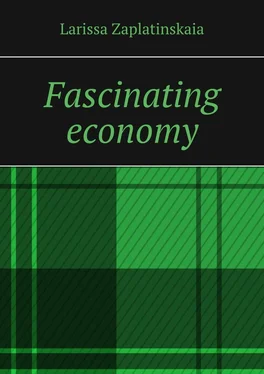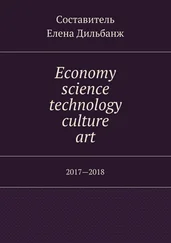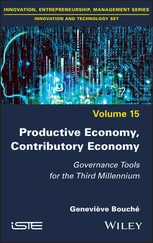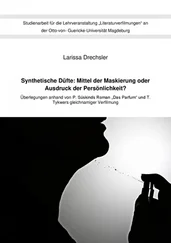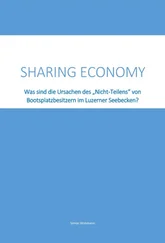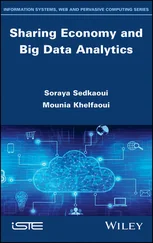Larissa Zaplatinskaia - Fascinating economy
Здесь есть возможность читать онлайн «Larissa Zaplatinskaia - Fascinating economy» — ознакомительный отрывок электронной книги совершенно бесплатно, а после прочтения отрывка купить полную версию. В некоторых случаях можно слушать аудио, скачать через торрент в формате fb2 и присутствует краткое содержание. ISBN: , Жанр: popular_business, на английском языке. Описание произведения, (предисловие) а так же отзывы посетителей доступны на портале библиотеки ЛибКат.
- Название:Fascinating economy
- Автор:
- Жанр:
- Год:неизвестен
- ISBN:9785005199331
- Рейтинг книги:3 / 5. Голосов: 1
-
Избранное:Добавить в избранное
- Отзывы:
-
Ваша оценка:
- 60
- 1
- 2
- 3
- 4
- 5
Fascinating economy: краткое содержание, описание и аннотация
Предлагаем к чтению аннотацию, описание, краткое содержание или предисловие (зависит от того, что написал сам автор книги «Fascinating economy»). Если вы не нашли необходимую информацию о книге — напишите в комментариях, мы постараемся отыскать её.
Fascinating economy — читать онлайн ознакомительный отрывок
Ниже представлен текст книги, разбитый по страницам. Система сохранения места последней прочитанной страницы, позволяет с удобством читать онлайн бесплатно книгу «Fascinating economy», без необходимости каждый раз заново искать на чём Вы остановились. Поставьте закладку, и сможете в любой момент перейти на страницу, на которой закончили чтение.
Интервал:
Закладка:
Free Choice
The first question raised by scarcity: What will be produced?
When you are alone, you can answer the question based simply on your personal needs or wants. When an entire society decides what will be produced, however, it raises a different question first: Who within society gets to make the decision? This question needs to be asked and answered before the first fundamental question.
It might seem obvious that the producers themselves should get to decide what to produce. Their role is to produce goods and services, so it makes sense to let them choose. This is exactly what happens in a free-market system: Producers are free to choose what to produce.
Producers also get to choose how to organize production, which addresses the second question. In fact, producers are free to answer all four of the fundamental questions without anyone telling them what they have to do. A capitalist society is one where allocation, production, and distribution are organized by the free choices of the producers.
The Customer Is Always Right
Capitalism leaves production decisions up to the producers, but the choices made by consumers also play an important role. Producers must eventually sell their goods and services to consumers. In a free-market system, consumers have the freedom to choose what to buy. This gives them a lot of power over producers.
Producers want the goods and services they make to be purchased and used. That means producers must pay attention to what consumers need and want. If consumers choose not to buy the goods and services they produce, the producers have to make different decisions.
Because of this, the needs and wants of consumers influence the decisions of producers. In a free-market economy, the free choices of both producers and consumers determine how the fundamental questions are answered.
Go with the Flow
A free-market system is based on the free choices of producers and consumers. The choices one group makes affect the other group. Consumers can only consume what producers produce. At the same time, producers want to make only what consumers need and want.
Because of this back-and-forth influence, capitalism has a circular flow. Influences and inputs move between producers and consumers. Economists call this a circular-flow model.
View the Circular-Flow Model below to see the circular-flow model of the free-market system.
The Circular Flow Model
The main players in the free-market game are producers and consumers. There is a circular flow of influences and inputs between them. A circle has no beginning and no end, so there is no first influence or input – but we need to begin somewhere, so let us start with the producers. Producers make goods and provide services. These go to the consumers to be used. The consumers purchase these goods and services. Consumers also provide the factors of production by working and investing. Producers pay for the work with wages, and they repay and reward the investments with profits. These things flow back and forth, continuing the cycle as producers and consumers interact and influence each other’s decisions.
Defending Freedom
The free-market system is based on producers and consumers making free choices. But often, consumers and producers have desires that conflict.
Conflict results naturally from people’s desires, and some people try to resolve conflict by using threats to force people to choose in a certain way. This is called coercion. When your desires conflict with someone else, the other person might try to make up your mind for you by using coercion.
Because the free-market system relies on free choices, coercion is usually forbidden in capitalist societies. It is illegal to take away people’s right to choose through coercion. Laws in capitalist societies are designed to defend the freedom of producers and consumers.
The Rules of the Game
There are many ways to take away someone’s freedom. Thus, rules are needed to make sure producers and consumers can make free choices. You already know some of these rules. For instance: No stealing.
«No coercion» is another important rule. Coercion can include lying, so «no lying» is also part of the rules of a free-market system.
In economics, the rules are laws. That is why the government passes laws against theft, coercion, and fraud. In a free-market system, the government has to make and enforce whatever laws are needed to guarantee free choice.
Private Property
Maybe you currently have some amount of financial freedom. Maybe you get an allowance, or you have a part-time job that provides a bit of spending money. But what if your allowance was taken away or you lost your job? Then you might have to ask someone else for money. Since the people you ask are free to choose, they can say yes or no.
To be free, you need more than protection against coercion. You need to have resources, too. If you do not have your own resources, then your ability to make free choices is limited.
In a free-market system, individuals get to make free choices about what to do with the resources they have. Therefore, rules protecting private property are among the most important rules of a capitalist society. These rules are referred to as property rights.
Land is one of the resources that helps people be free.
The Resource of Work
Land, money, and capital are resources, but they are not the only resources that allow one to make free choices. Healthy adults who own no property still possess one important resource – their own labor. The ability to work is an important resource in a capitalist system.
The rules of the free-market system protect you against coercion. It is illegal for anyone to force you to do something. This means that the rules guarantee that you can make free choices about how you sell your labor to others.
Labor is an important resource. Almost all production requires some labor. So, everyone who can work has an important resource, the resource of work. Having this resource gives people the ability to make free choices.
Competition
The free-market system relies on free choice and private property, but that is not all. Competition is another important part of capitalism.
Competition is needed to guarantee freedom. Without competition, people do not have a lot of choices. In fact, they might have only a single choice.
Free-market systems have to guarantee that there will be competition. It is one of the rules. Without competition, you would have to take the «free» out of free-market system.
Stock exchange
On the floor of the New York Stock Exchange, traders compete with each other to buy and sell shares.
The Importance of Competition
Imagine that you are hungry, and you want a sandwich. If there are a lot of different sandwich shops in competition with each other, then you will have a lot of choices. In fact, you will probably have fairly good choices. Because you can go to someone else, each shop is competing to get your business. This kind of competition gives the consumer a lot of good choices. They have got a lot of things to freely choose among.
But what if there were only one sandwich vendor? As a consumer, you would have to go to this one sandwich vendor and take what they had. Maybe they only have tuna fish sandwiches that cost $20. You do not even like tuna fish sandwiches, and you definitely do not want to pay $20 for one. But what other choice do you have? You have to buy the $20 tuna-fish sandwich or go hungry. You can always choose no sandwich and starve, but that is not much of a choice, is it? If your freedom consists solely of choosing between something you do not want – an expensive sandwich you won’t like – and something else you do not want – starvation – then it is hardly worth calling it freedom. Without competition, consumers do not have the freedom they are supposed to have.
Читать дальшеИнтервал:
Закладка:
Похожие книги на «Fascinating economy»
Представляем Вашему вниманию похожие книги на «Fascinating economy» списком для выбора. Мы отобрали схожую по названию и смыслу литературу в надежде предоставить читателям больше вариантов отыскать новые, интересные, ещё непрочитанные произведения.
Обсуждение, отзывы о книге «Fascinating economy» и просто собственные мнения читателей. Оставьте ваши комментарии, напишите, что Вы думаете о произведении, его смысле или главных героях. Укажите что конкретно понравилось, а что нет, и почему Вы так считаете.
